The Indian Premier League (IPL) has become one of the most lucrative and thrilling cricket tournaments globally, attracting millions of fans every year. However, with the huge amounts of money involved and the spotlight constantly on the players and teams, the IPL has been marred by multiple fixing scandals that have raised many questions. Fans and experts alike continue to wonder about the integrity of the tournament, with speculation about which team might be involved in such illicit activities. In this article, we will dive deep into the world of IPL fixing, focusing on the question: Which is the No. 1 fixing team in IPL?
We’ll explore the history of IPL fixing, controversies surrounding various teams, and the efforts made by the Board of Control for Cricket in India (BCCI) to curb corruption in the tournament. Along the way, we’ll also address some of the most frequently asked questions such as “Is IPL fixed?”, “Which is the fixing team in IPL?”, and much more. So, grab a cup of tea, sit back, and let’s unravel the truth behind these scandals.
The History of IPL Fixing Scandals
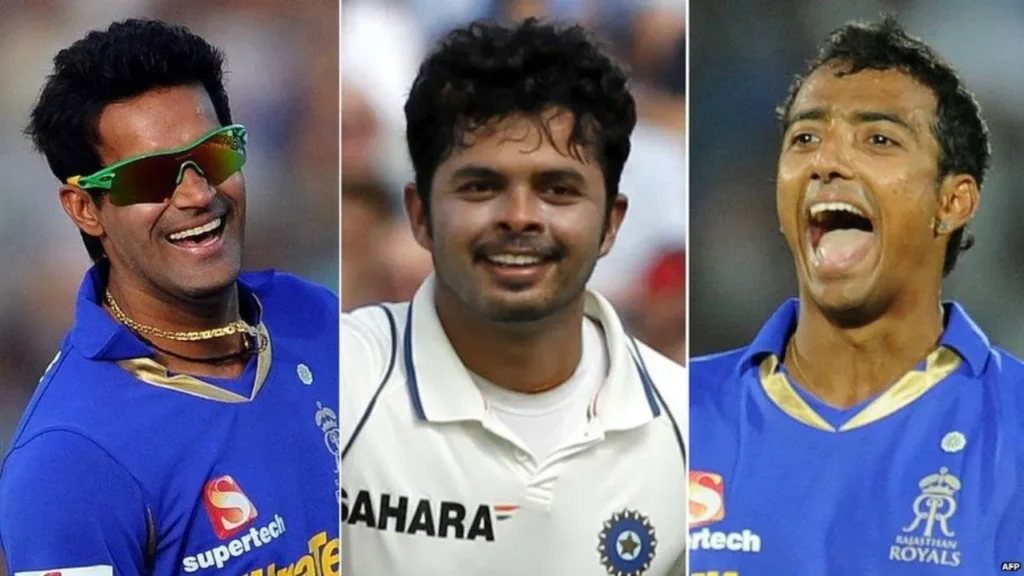
Before we get into which team could be considered the “No. 1 fixing team in IPL,” it’s important to understand the history of fixing in the IPL. Fixing, in the context of cricket, refers to the manipulation of match outcomes, player performances, or betting activities by individuals with vested interests, typically for financial gains.
The IPL, given its massive fan following and the sheer scale of its operations, has witnessed its fair share of fixing scandals. The most prominent of these occurred in 2013, when three cricketers—Sreesanth, Ankeet Chavan, and Ajit Chandila—were arrested for their involvement in spot-fixing. These incidents shook the cricket world to its core and raised serious doubts about the integrity of the tournament.
After the 2013 scandal, the BCCI took several steps to prevent further occurrences, including the formation of the Anti-Corruption Unit (ACU). This unit has since been responsible for monitoring players and officials, ensuring that no illegal activities take place during the tournament. However, despite these efforts, fixing rumors still circulate, with many wondering whether the IPL is truly free of corruption.
Fixing Teams in IPL: Are There Any?
The idea that a “fixing team” exists in IPL is a contentious issue. Fixing is usually associated with individual players, rather than entire teams. However, the question remains: Which is the fixing team in IPL?
While no team has ever been officially labeled as the “fixing team,” several allegations have emerged over the years. Teams with large fanbases and financial stakes have often been linked to controversies. Some of the most notable instances include:
1. Rajasthan Royals (2013)
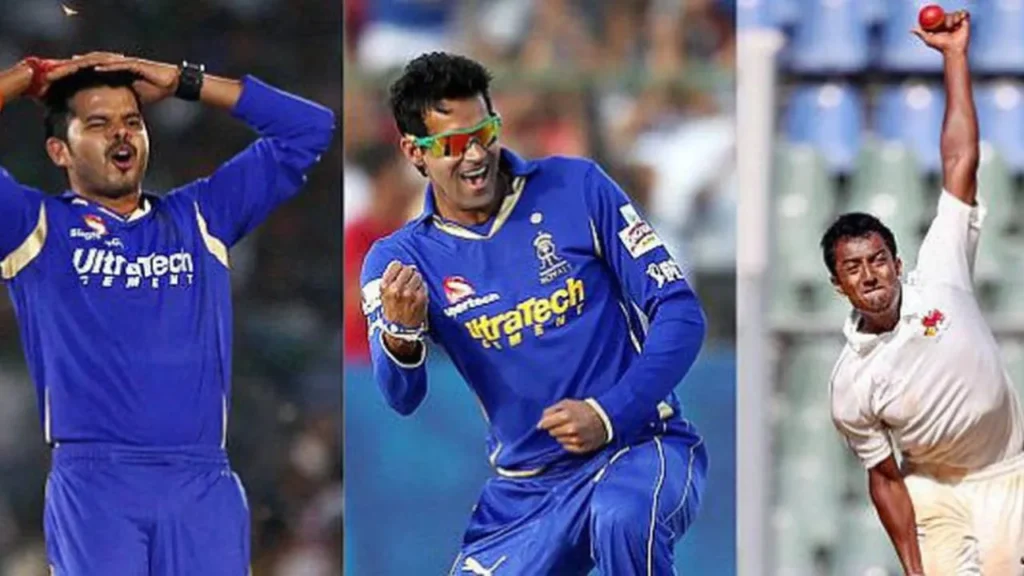
The Rajasthan Royals were at the center of the 2013 spot-fixing scandal. Three of their players—Sreesanth, Ankeet Chavan, and Ajit Chandila—were arrested for their involvement in fixing. The arrest of Sreesanth, a prominent Indian cricketer, made headlines globally. Although no direct evidence was found linking the entire team to fixing, the scandal left a dark cloud over the Rajasthan Royals franchise. Despite this, the team has managed to regain its reputation and continues to be a competitive force in the IPL.
2. Chennai Super Kings (2013)
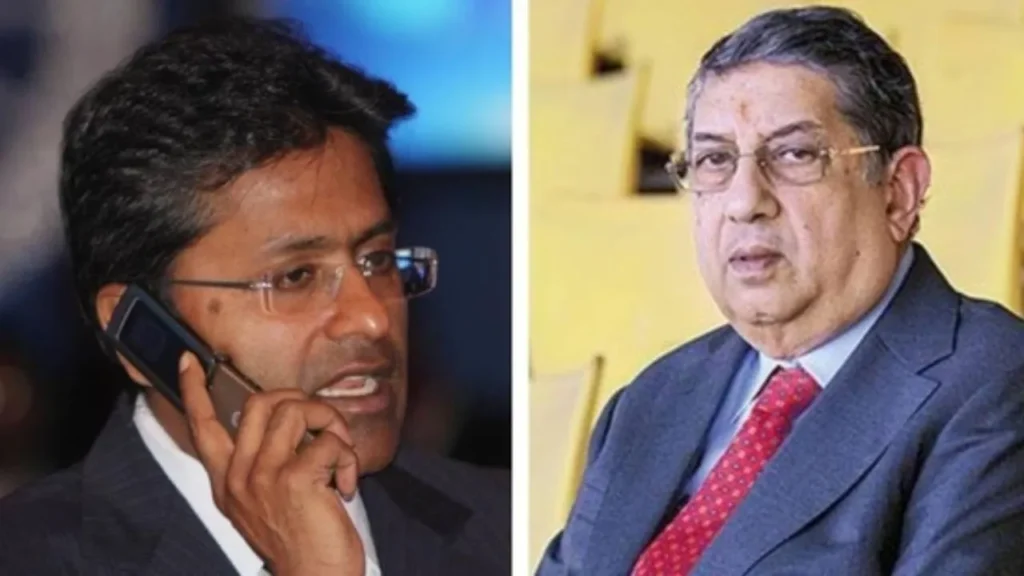
Another significant case of fixing involved the Chennai Super Kings (CSK), one of the most successful teams in IPL history. The team’s former team principal, N. Srinivasan, was accused of being involved in match-fixing activities indirectly. The team’s bowler, Shadab Jakati, was also investigated for possible spot-fixing during the 2013 season. CSK was banned for two years in 2015 as part of the investigation, a penalty that significantly impacted the team’s fortunes. However, the franchise came back strong in 2018 and regained its top-tier status, and it continues to enjoy massive fan support.
3. Delhi Daredevils (2014)
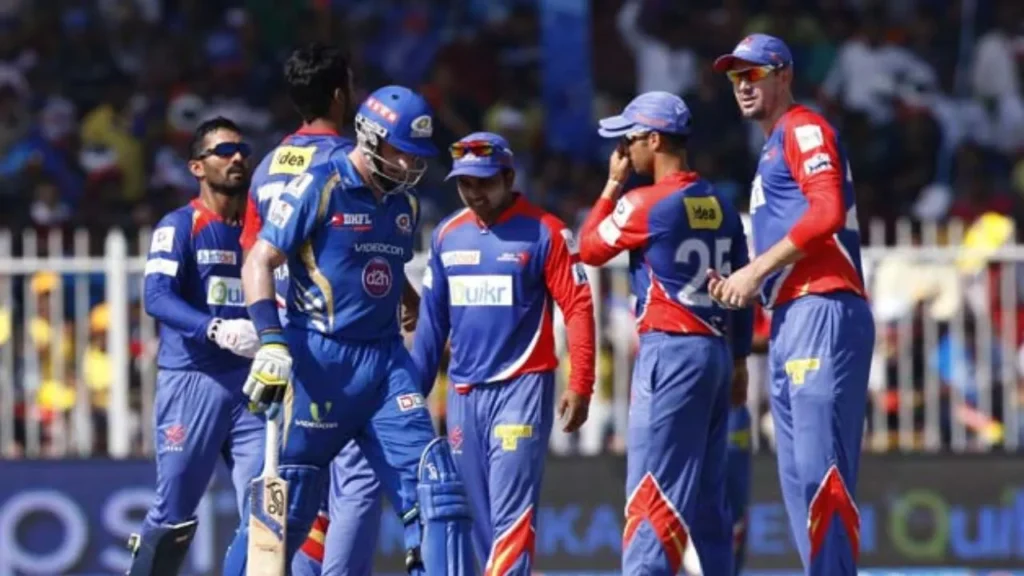
The Delhi Daredevils (now Delhi Capitals) were not directly implicated in any fixing scandals, but the team’s poor performances and inability to live up to expectations raised suspicion among fans and experts. Despite the lack of direct involvement, some people speculated that the team’s underperformance in certain matches could be linked to fixing or match manipulation. However, there was never any conclusive evidence to support these claims.
Is IPL Fixed? The Big Question
One of the most common questions asked by fans is: Is IPL fixed? The question comes from years of speculation, rumors, and the occasional scandal that has rocked the tournament. However, as of now, there has been no concrete evidence to prove that the entire IPL tournament is fixed. The BCCI and the IPL governing council have made considerable efforts to ensure that the tournament remains free from corruption.
Despite these efforts, the sheer scale of the IPL, combined with the millions of dollars involved, means that occasional fixing activities cannot be ruled out. The existence of betting syndicates, both inside and outside India, adds to the complexity of the situation. It’s important to note that while isolated incidents of spot-fixing or match-fixing have occurred, these do not indicate that the IPL as a whole is fixed.
Efforts to Combat Fixing in IPL
To maintain the integrity of the IPL, the BCCI has implemented several measures to combat corruption. Some of these measures include:
- Strict Anti-Corruption Unit (ACU): The ACU is responsible for monitoring players, officials, and the broader IPL ecosystem to ensure that no illegal activities take place. The unit regularly conducts educational sessions for players and team staff to raise awareness about the dangers of fixing and the consequences of being involved in such activities.
- Player Vetting Process: All players who wish to participate in the IPL are thoroughly vetted by the BCCI. This includes background checks, assessments of their financial status, and investigations into their potential links to illegal betting or fixing syndicates.
- Tough Penalties for Fixing: The penalties for players found guilty of fixing are severe. Players who are found guilty face lifetime bans from the sport, hefty fines, and reputational damage. The BCCI’s zero-tolerance policy sends a strong message to anyone who might consider engaging in corrupt activities.
- Collaborations with Law Enforcement: The BCCI works closely with law enforcement agencies, both in India and internationally, to track down illegal betting operations and prevent any attempts at fixing matches. The IPL’s massive scale makes it an attractive target for betting syndicates, which is why law enforcement cooperation is vital.
IPL Fixing, Which Team is Involved in Fixing?
While there is no confirmed “No. 1 fixing team in IPL,” the history of fixing in the league indicates that some teams have been more frequently linked to controversies. However, it’s essential to clarify that fixing is often the result of individual actions rather than collective team efforts. In the case of the Rajasthan Royals, Chennai Super Kings, and other teams, only specific individuals were implicated in the scandals, not the entire team.
The Role of Bettings and Bookmakers in IPL Fixing
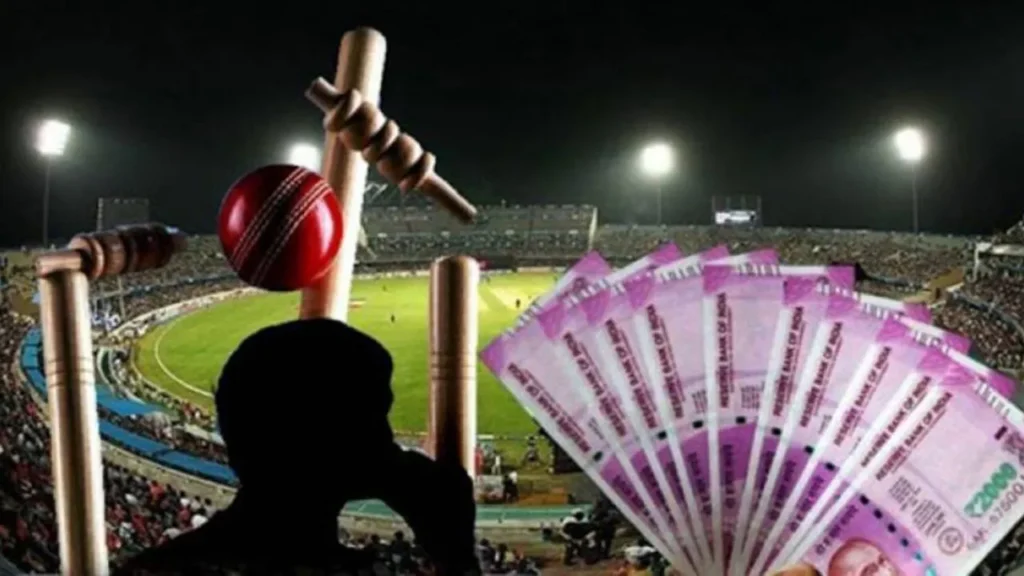
One of the driving forces behind fixing in cricket, particularly in the IPL, is the involvement of illegal betting and bookmakers. In a country like India, where betting on cricket is illegal, underground betting syndicates thrive, offering massive sums of money to players in exchange for their participation in match-fixing.
The IPL’s high-profile nature makes it an attractive target for these syndicates. These bookmakers often approach players with offers to fix certain aspects of the game, such as the number of runs scored, the number of wickets taken, or the result of specific overs. Players who succumb to these offers often do so due to financial pressures or other personal reasons. The BCCI and law enforcement agencies have been working tirelessly to combat these issues, but the influence of illegal betting remains a challenge.
IPL Scandals, IPL Match Fixing, IPL Corruption, IPL Betting
The IPL has faced several scandals in the past, from match-fixing to spot-fixing and illegal betting. While the BCCI has made strides to clean up the game, the ongoing problem of corruption and betting remains a dark cloud over the tournament. It’s essential for cricket lovers to understand that while fixing does exist, the entire league is not corrupt.
In conclusion, while the question of which team is the No. 1 fixing team in IPL remains unanswered, it’s important to remember that fixing in the IPL, as in any sport, is usually an individual act rather than a team-wide conspiracy. Teams like Rajasthan Royals and Chennai Super Kings have been linked to past fixing scandals, but no definitive evidence has ever been found to implicate an entire team in the conspiracy.
As the IPL continues to grow in popularity and stature, it’s crucial for both the BCCI and the fans to stay vigilant and protect the integrity of the game. While isolated incidents of fixing might continue to surface, it is evident that significant efforts are being made to ensure that the IPL remains a fair and exciting tournament for all.
So, Is IPL fixed? The answer is no, not entirely. But fixing exists on the fringes, and it’s essential to address it head-on. Ultimately, the tournament is a celebration of cricket, and efforts to keep it clean should be supported by all those who love the game.
Frequently Asked Questions (FAQs) on IPL Fixing
While no team has ever been officially designated as the No. 1 fixing team in IPL, the Rajasthan Royals and Chennai Super Kings have been linked to fixing scandals in the past. The 2013 spot-fixing controversy involving players from Rajasthan Royals and the 2015 ban on CSK due to indirect fixing allegations were notable incidents. However, it’s important to note that fixing is typically an individual issue, not a team-wide conspiracy.
No, the IPL is not fixed. While there have been allegations and isolated incidents of spot-fixing and match-fixing, the Board of Control for Cricket in India (BCCI) and the Anti-Corruption Unit (ACU) have implemented strict measures to maintain the integrity of the tournament. The BCCI works diligently to ensure that IPL corruption does not affect the outcome of matches.
There is no definitive answer to the question of which is the fixing team in IPL. While Rajasthan Royals (2013) and Chennai Super Kings (2015) have been involved in fixing controversies, no team has been proven to be consistently involved in IPL match fixing. These allegations were linked to individual players and not the team as a whole.
Fixing in the IPL typically involves illegal betting syndicates who approach players to manipulate certain aspects of a game, such as specific overs or the number of runs or wickets taken. These syndicates offer large sums of money to players in exchange for their involvement in spot-fixing or match-fixing. The BCCI and law enforcement work hard to identify and eliminate these activities.
The 2013 IPL fixing scandal was one of the most significant incidents of corruption in the tournament’s history. Three players from Rajasthan Royals—Sreesanth, Ankeet Chavan, and Ajit Chandila—were arrested for their involvement in spot-fixing. This scandal led to a massive investigation by the BCCI, which resulted in bans for the players involved, and prompted tighter anti-corruption measures in the tournament.
Yes, Chennai Super Kings (CSK) faced allegations of fixing following the 2013 IPL season. The team’s former principal, N. Srinivasan, was linked to the controversy, and there were allegations of spot-fixing involving players. As a result, CSK was banned from the tournament for two years, along with the Rajasthan Royals. However, the team returned to the IPL in 2018 and has been one of the most successful franchises.
While match-fixing has been an issue in the past, it is not common in the IPL. The Anti-Corruption Unit (ACU) and the BCCI have worked relentlessly to detect and prevent fixing in the IPL. Any suspected fixing activity is thoroughly investigated, and players found guilty face severe penalties, including lifetime bans.
Illegal betting plays a significant role in IPL fixing. Betting syndicates often approach players to manipulate match outcomes or specific events during a match. Since betting on IPL matches is illegal in India, these syndicates often operate underground. The BCCI works with law enforcement agencies to track and dismantle these operations, ensuring fair play during the tournament.
The BCCI has put in place several measures to prevent fixing in the IPL. These include the establishment of the Anti-Corruption Unit (ACU), strict background checks for players, regular anti-fixing workshops, and collaborations with law enforcement agencies. Additionally, players found guilty of fixing face severe consequences, including lifetime bans and reputational damage.
Yes, several players have been banned for their involvement in fixing activities. Most notably, Sreesanth, Ankeet Chavan, and Ajit Chandila were banned after their involvement in the 2013 spot-fixing scandal. Other players have also faced suspensions or bans as a result of their association with fixing activities. These actions show the BCCI’s zero-tolerance policy toward fixing in the IPL.




